Virtual reality in the hospitality industry is one of the best things to happen to travel since the creation of the Internet. The connection isn’t always obvious. But imagine how people’s idea of travel, and related industries like hospitality, would change if they could instantly gaze into any destination on earth. Now prepare to see how that’s become a reality.
Quick Menu:
- Travel, the Metaverse, and Virtual Reality in the Hospitality Industry
- What Is Virtual Reality?
- What Is the Difference Between Virtual Reality, Mixed Reality, Augmented Reality, and Extended Reality?
- What Is the Hospitality Industry?
- Ways to Use Virtual Reality in the Hospitality Industry
- Real-World Examples of Virtual Reality in the Hospitality Industry
- VR Extends Beyond Virtual Reality in the Hospitality Industry
Travel, the Metaverse, and Virtual Reality in the Hospitality Industry
Virtual reality in the hospitality industry is inherently linked to the metaverse concept. The metaverse is best conceived as a merger or bridge between the digital and physical worlds. Neither the internet nor the physical world is the metaverse. Instead, it comes from mixing both into something new and continually developing. The metaverse meaning is also tied into the use of new technologies and metaverse devices like VR headsets to become part of this new realm.
VR headsets let you fully immerse yourself in the metaverse. While other devices, like smartphones, might bring digital elements into the physical world through augmented reality. But all of these implementations are social and can be shared with friends inside a boundless and persistent world that’s always online. You can learn how to open the door to this new world in the article “Metaverse Guide; Understanding The Basics Will Open Up a New World”.
What Is Virtual Reality?
Virtual reality in the hospitality industry builds on some of the basic concepts of the metaverse. And specifically through its use of virtual reality (VR). VR is any technology that replaces your view of the world with artificially generated elements. This is typically done through a VR headset which contains displays for each eye, speakers, motion sensors, and more. It creates a feeling of immersion that makes you feel like you’re participating in anything you could dream of.
People use VR to put themselves into their video games, hone medical skills in safe environments, and see amazing sights. This incarnation of VR is new, but the idea has existed since the mid-1950s when people could experience “Sensorama” in movie theatres with 3D images and artificial smells. In the article “Virtual Reality; Discover VR, Its Components, Technology, and Players”, you can discover more about VR.
What Is the Difference Between Virtual Reality, Mixed Reality, Augmented Reality, and Extended Reality?
Virtual reality in the hospitality industry puts a heavy focus on VR. But it’s essential to remember that metaverse technologies are all connected. And VR is just one form of extended reality (XR). There are currently two other major forms of XR – augmented reality (AR) and mixed reality (MR). VR is all-enveloping. It creates a virtual reality. But AR augments the physical world by overlaying digital displays on it. While mixed reality combines both to mix a new reality with holograms, projections, and more.
You can learn about how AR is changing the world in the article “Augmented Reality; Learn About AR Tech, Use Cases, Devices, and More!”. The article “Mixed Reality; Everything to Know About MR Technologies” looks at this new technology. And you can get an overview of XR in the article “Extended Reality; How is XR Changing the Digital World?”.
Receive Metaverse Information & Related Topics
What Is the Hospitality Industry?
The final foundational element of virtual reality in the hospitality industry is the industry itself. The hospitality industry can be broadly defined as any commercial activity that extends hospitality to customers to generate luxury, pleasure, and overall enjoyment. This is distinct from services that deal with a customer’s absolute necessities. The term is most commonly used to refer to services related to tourism. But the same facilities are just as capable of caring for locals looking to relax, people traveling for business, etc. The elements which make a trip go from good to great.
Ways to Use Virtual Reality in the Hospitality Industry
Now that you understand VR and the general hospitality industry, it’s time to combine all the pieces. Keep in mind that the hospitality industry is immense, and many variations exist on this theme. But the following examples highlight some of the most critical uses of VR in hospitality.
VR Hotel Tours
Anyone who travels a lot can attest that hotels can be a roll of the dice. It’s hard to know if a hotel perfectly matches your taste or whether you’ll need to keep looking. It’s not just a problematic situation for travelers either. Hotels themselves want to ensure that guests are going to come away satisfied. And that’s why hotel tours are such a perfect implementation of virtual reality in the hospitality industry.
VR hotel tours provide people with a first-person tour of hotels without ever needing to leave their homes. A VR tour is one of the best ways for guests to get a feel for their potential accommodations and the hotel as a whole. Moreover, it allows the hotel to demonstrate that it’s staying current with the latest technology. Guests will feel assured of their accommodations in multiple ways.
Video: Hotels 360 VR, 360 video Virtual Tour for hotel
VR Booking Process
Imagine traveling without the hassle of booking rooms and scheduling flights. That’s part of the promise held out by virtual reality in the hospitality industry. You’ve already seen how people can use virtual reality to check out accommodations before making reservations. And this can also be extended to the booking process. A single VR session can unify everything involved with travel. Your VR headset can be your gateway to booking flights, accommodations, and even price comparisons.
All of this helps to minimize time spent planning and micromanaging. Consumers have moved into a mindset centered on purchasing experiences rather than things. And with VR, you can get a taste of those experiences before committing to them. You can see the room, the various amenities, and services, and get first-person views of the area’s best attractions. And all of this can be done through a seamless VR experience.
Video: Travel booking VR experience
VR Travel
Travel’s one of the first things people think of when virtual reality in the hospitality industry comes up. VR travel lets people experience real-world locations by simply donning a headset. This often involves traversing some of the world’s most famous and scenic landmarks. But it can also seamlessly integrate into other areas of the hospitality industry. For example, if someone is taken by a particular location, they might be able to use that same VR interface to book a stay in a nearby hotel.
And similar concepts apply to selling rooms, travel products, and even flights. Many hotels even provide VR experiences of nearby landmarks for that exact reason. This doesn’t just apply to sightseeing either. For example, a hotel near a theme park might offer a VR recreation of roller coasters or other rides. It’s a “try before you buy” experience for travel.
Video: Travel The World Without Leaving Home
VR Training
Metaverse brands often emphasize that the digital world can perfectly represent the physical. And this concept has been proven time and time again by the use of virtual reality in the hospitality industry. Hotels are using VR to reboot employee training programs essentially. Trainees can don headsets and step into a virtual world with virtual guests to hone their skills. The most remarkable part of this process is that a mistake has no real-world consequences.
For example, imagine a front desk trainee sitting in a virtual hotel. Avatars representing guests could present him with a wide variety of different problems. And the trainee could try out different strategies in advance to perfect his performance and presentation. Because this is a virtual setting, swapping out other user interfaces, management systems, etc, is easy. It’s a training method that can prepare employees for anything.
Video: Hospitality VR Training
Virtual Reality Marketing
New technologies are changing how people relate to the intangible. For example, the underlying NFT meaning has changed how people look at artistic investments. So too, has VR changed how people look at travel. Virtual reality in the hospitality industry allows people to try intangible products before purchasing. This helps encourage educated purchases where customers get the perfect match for their needs. VR also makes shifting strategies toward engaging customers and fostering loyalty easier.
VR is proving to be an effective method to prompt a user’s desire to make a purchase they’d been considering. For example, presenting a high-resolution 360° view of a beautiful location can grow interest in ways that static images couldn’t. The same holds for businesses like restaurants. Showing people the atmosphere and food in an establishment can entice people in many ways.
Video: Hotel Industry Leaders react to VR Marketing Innovation
Real-World Examples of Virtual Reality in the Hospitality Industry
If you were impressed by the previous concepts, then you’re hardly alone. Virtual reality in the hospitality industry is catching on in a big way. Several companies are already leveraging the concepts to great success. But the following are the most significant real-world examples of companies working with VR in hospitality.
Marriott
Marriott is using virtual reality in the hospitality industry in two very different but equally impressive ways. The first is through Marriott’s Milk VR. Guests can borrow VR headsets to explore this fascinating virtual resource. But they can also use Marriott’s second VR resource – VR postcards. Marriott’s VR lets users work with their experiences to create a visual storytelling medium, letting people share their amazing adventures with people back home. Taken together, these approaches create something truly unique. It’s an opportunity to experience exotic adventures while also sharing them with loved ones.
Video: VR Postcards | Behind the Scenes
Hilton
Hilton Hotels joined in with the virtual reality in the hospitality industry with a little help from Facebook and Oculus. Hilton is already one of the largest companies in the hospitality sector, with over 6,000 properties in 117 countries and territories. It’s also earned the title of second-best workplace in the world. Hilton continues to emphasize that fact by using VR training for employees via the Oculus for Business platform alongside the SweetRush development company. The result is a cutting-edge training program that has improved behavior for 87% of team members that have used it.
Video: How Hilton Uses Virtual Reality for Training
Innis & Gunn
Innis & Gunn is understandably proud of their beer. And they’re using virtual reality in the hospitality industry to show customers why. The company’s virtual reality experience provides two beers, highlighting the different journeys each choice could provide. It’s a campaign that reinvents the experience of drinking beer. And it’s helped the company reach all new markets while setting itself apart from the competition. The Innis & Gunn VR experience appeals greatly to people interested in either VR or beer. People unfamiliar with the brand, drawn in by those two elements, will undoubtedly become invested in it.
Video: Immersive & Gunn: Lager
Best Western
Best Western has joined virtual reality in the hospitality industry with an impressive combination of technologies. The first is its Best Western Virtual Reality Experience (BWVRE). BWVRE transforms the experience of shopping for hotels in various ways. Guests can experience all of Best Western’s essential hotel areas in virtual reality. And Best Western is using VR to help employees with its I Care® Every Guest Every Time training. This platform uses VR to enhance and transform communication between guests and the front desk. It’s a full simulation where staff can hone skills in realistic scenarios.
Video: Best Western Virtual Reality Experience
VR Extends Beyond Virtual Reality in the Hospitality Industry
Virtual reality in the hospitality industry highlights just how much technology is changing people’s relationships to travel. But if you keep up with metaverse news, then you know it’s hardly alone in that trend. Metaverse crypto is changing finance and NFT art collecting, and metaverse companies are generally connecting everyone to the latest technologies. Doctors are learning surgical techniques through VR while architects test designs in the metaverse to ensure clients are happy with the concepts. You can see how virtual reality is changing the industry in the article “Virtual Reality Industries; An Overview of All Sectors Using VR”.
Virtual reality in the hospitality industry is changing how people look at both business and travel. It’s making trips easier and more entertaining than ever. And what’s more, you can experience this new world right here and now.
Did You Like This Article About Virtual Reality in the Hospitality Industry?
You might also be interested in the following articles:
- Augmented Reality in Healthcare; Clear Examples of AR in Healthcare
- Metaverse Coins; What Is a Metaverse Coin & Where to Find Them?
- What Is an NFT? Non-Fungible Tokens Clearly Explained

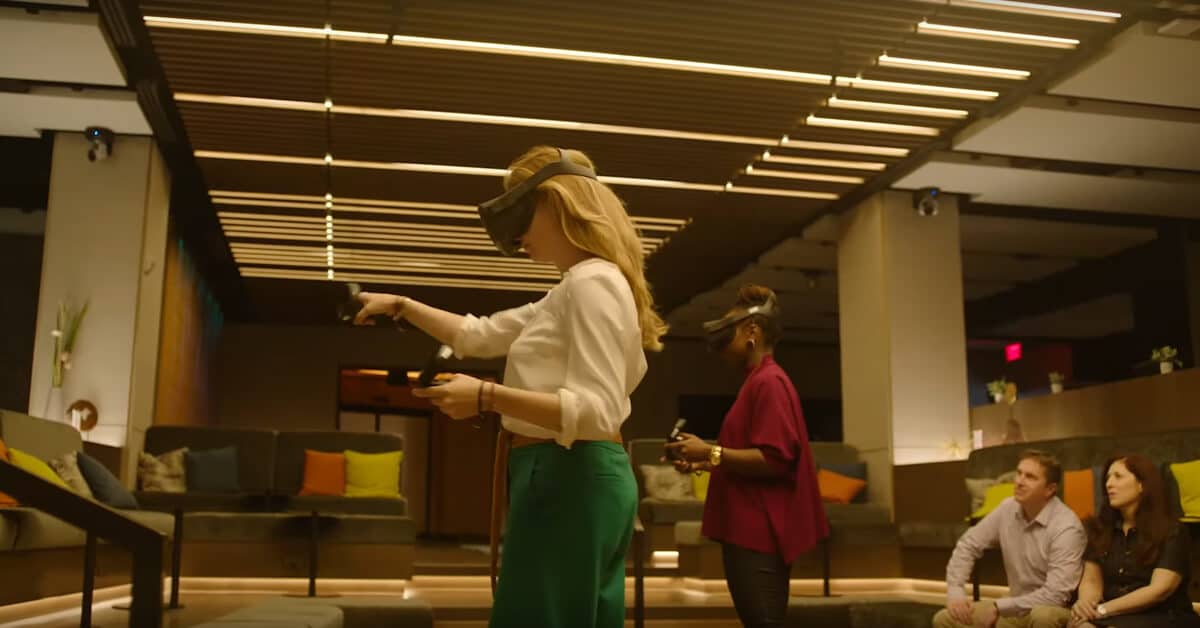
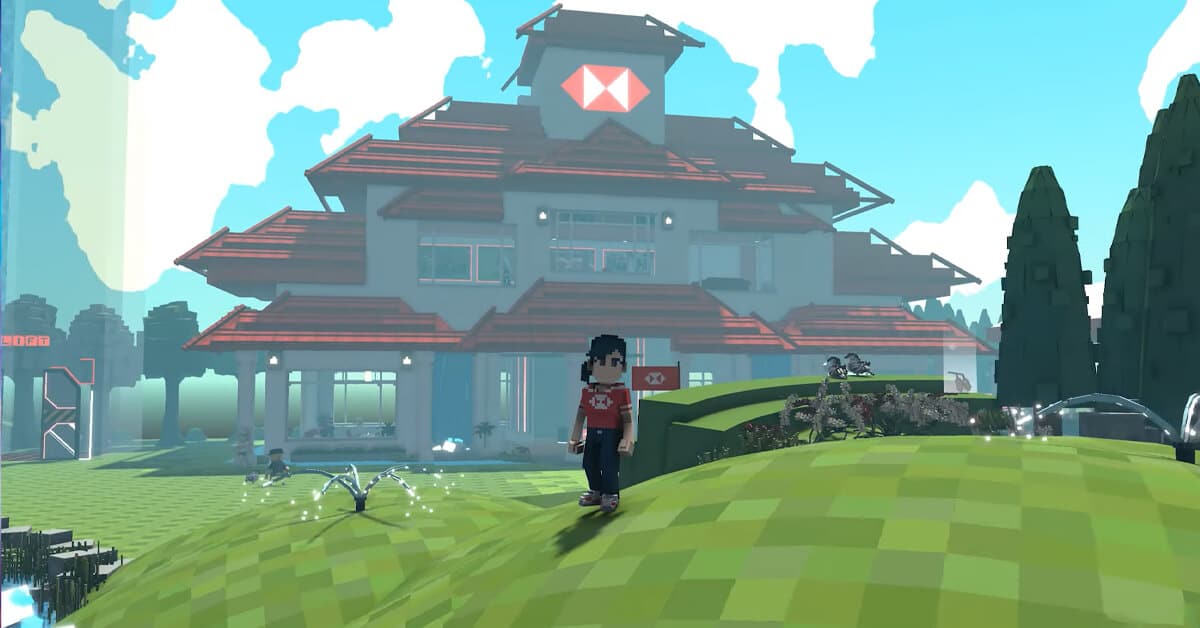
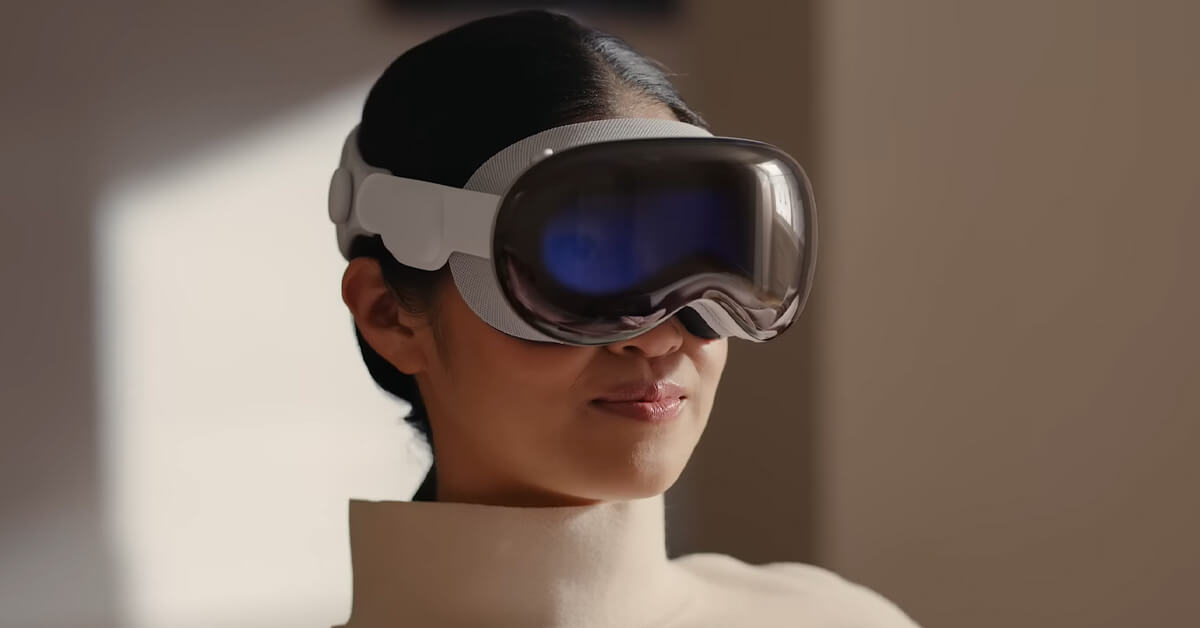
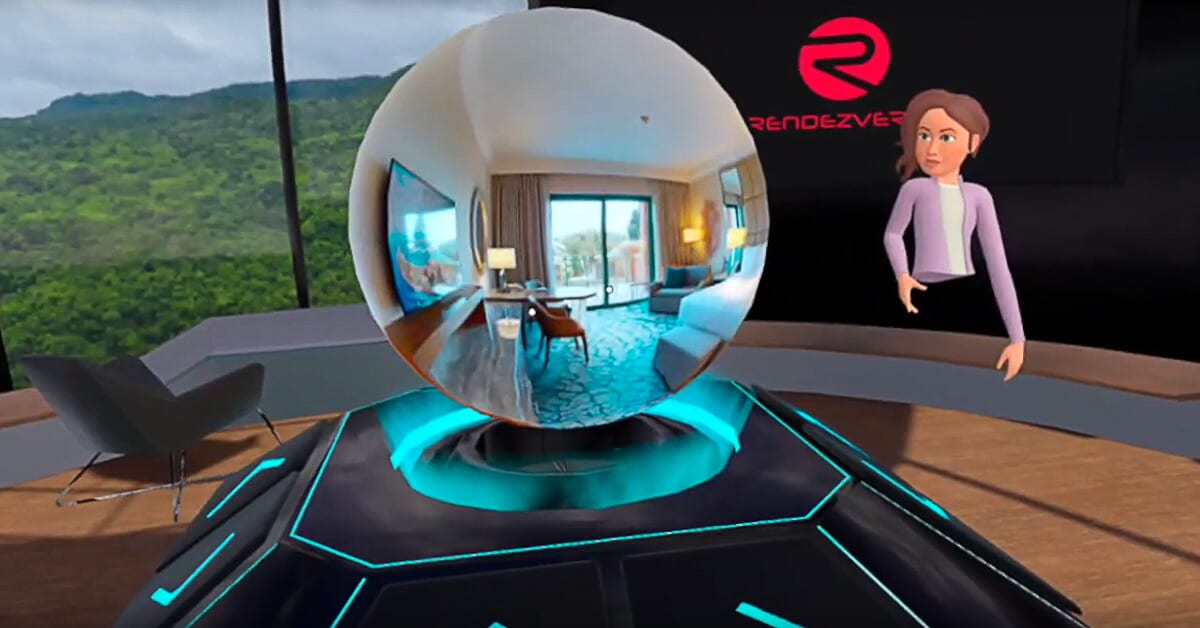
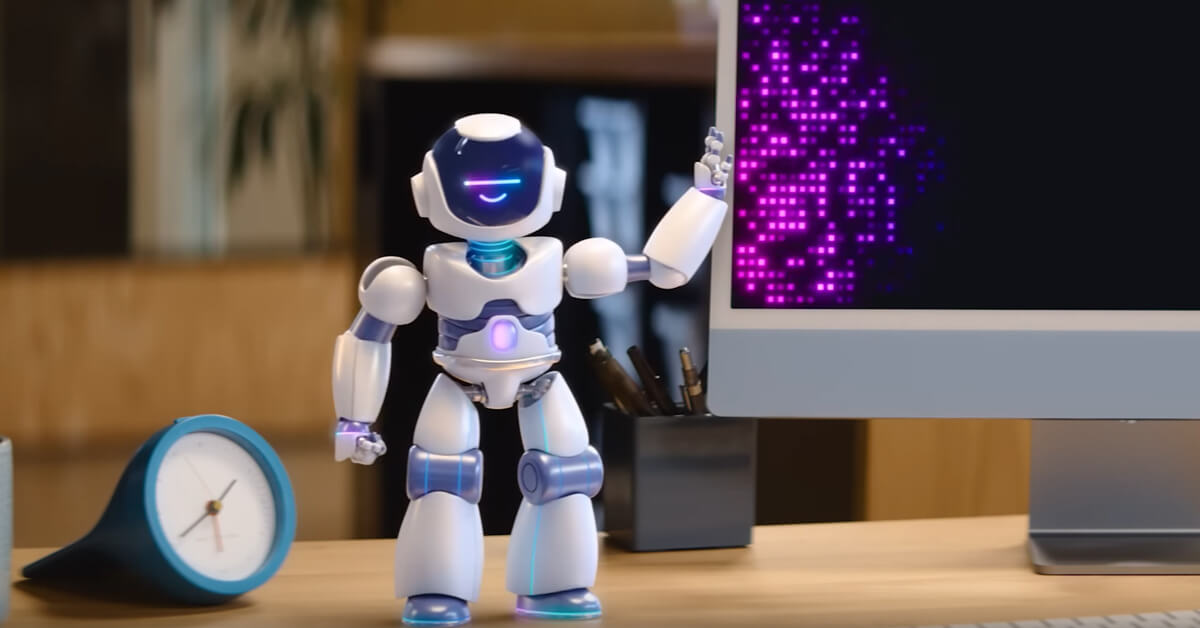
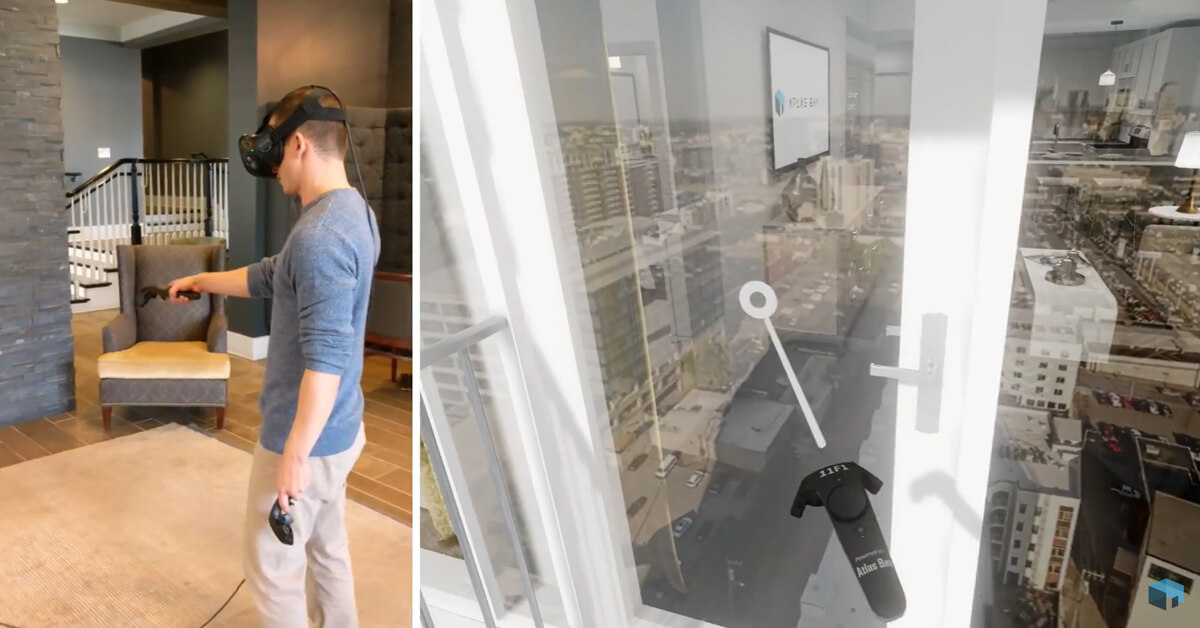
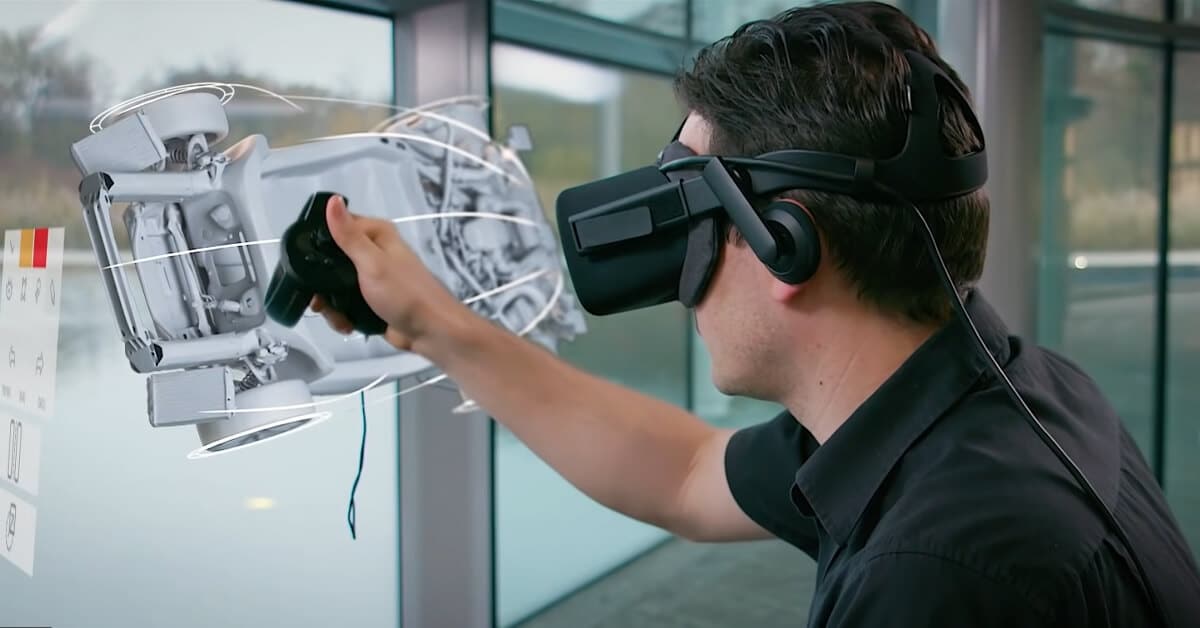

Leave A Comment